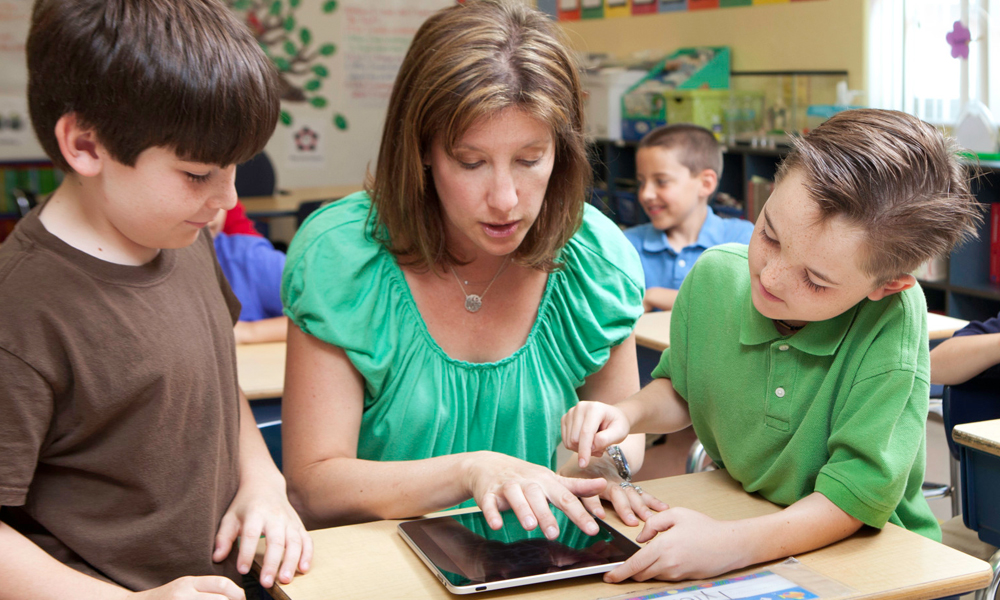Suppose someone says that a modern technology would be available in five years that has the probability to reform childhood and advance education. Still, the drawback is that you will have to from among 80,000 applicable options. This is the issue which facing many parents now-a-days. After the invention of the iPad in 2010, by 2015 there were 80,000 apps promoted as ‘educational’ in the Apple app store only.
So, it is crucial to determine how we can put the education back in educational apps. We applied some principles that teachers, parents and app developers use to consider the difference between what is actually educational and what is just cunning as such.
- Apps should be mind working not blocking mind- When in a condition which are unfamiliar to us, we just follow instructions providing by another person’s rather than using our own mind. The analysis says that’ these kinds of “mind-off” activities are exactly what you want to avoid in selecting educational apps for children.
In a study of word learning, children who enthusiastically used a process of eradication to find out what thing a new label was suggesting to showed better learning than those who were clearly told that same information. Apps should use these types of determining processing. Before you download, consider whether your child wills easily watching the screen or swiping flying fruit, instead of actively interpreting problems and thinking enormously
- Apps should be connected, not diverting- Imagine that you were cooking something and someone rings your door, you would definitely confuse about you have added salt or not. these types of distractions lead your attention away from what is happening around you, yet especially these types of added features actually what many developers include as ‘advancements’ in several apps.
A research comparing reading of electronic and traditional tools derived that when younger kids read traditional books with their parents, parents’ state more regarding the story and less observe the behavior of children for instance “push the button”. Moreover, those reading of traditional books found improvement in awareness and were better able to remember the sequences of happening in the story.
The difference is feasible because electronic books may disturb the child with “bells and whistles” like sound effects or games and reduce attention from the story. Apps can and should be entertaining. As a parent, you should search for an app which assists your child to continue on task and not become distracted.
- Apps should be purposeful- While understanding basic is a significant building block, if your kid does not know that there are letters that is relevant to those sounds and that they create our ability to communicate, this knowledge is mere a song with no proper understanding.
A study has shown that kids learn better if their parents support them play in a way that aids them to understand the meaning. Suppose, you teach them by drawing triangle shapes on screen and they see any things in practical life, such as pizzas having cut into triangle shapes. Apps that teach letters and numbers are good; still it is important for children to understand why this knowledge is so important. They require seeing the information in use.
- Apps which help children to interact socially and support learning- Many studies show that the best material for young children is not an attractive video, DVD, or even an app. Moreover, other human beings are the best resource as an alternative to child’s deeper learning. We noticed at one research of children’s ability to learn the meaning of strong word from different structures. They taught word in a live communication, an electronic communication such as Skype, or through simple video. The children got the new information better if it was introduced to them either live or on screen.
This is just one of the multiple studies that recommend that humans are the best at teaching children. On the other hand, the concept of apps can sometimes sound actually unsocial, newer apps beating the market motivates children to play in company with parents or friends. Indeed feeling like they have social relationships with well-known characters such as Mickey Mouse comes to help children and has the probability to enhance learning and involvement.
Ultimately, one last but very important thing to consider is the context in which your child learning. When parents set up a learning experience where children are provided the tools to solve a problem and the right to find the solution by individually, they learn better by this way.
The ORATARO app is a well-known platform to provide different apps and assist parents and teachers to consider which educational apps are for students and which are simply for fun.

